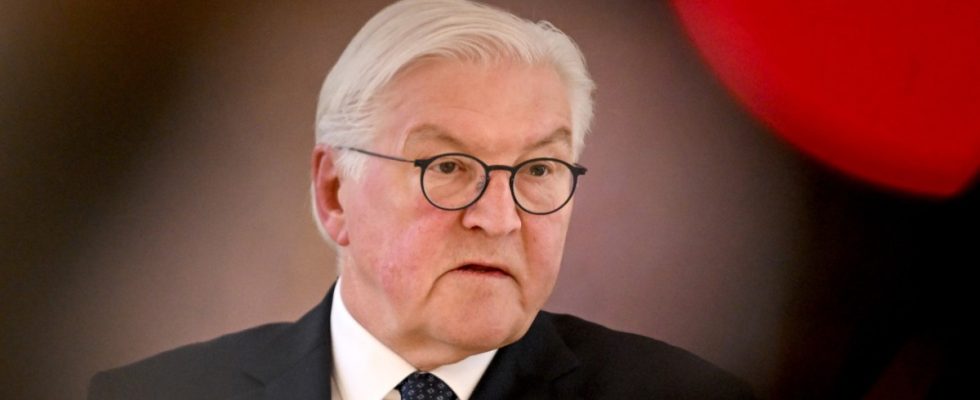It doesn’t happen every day that the Union is enthusiastic about the Federal President. But now Frank-Walter Steinmeier has suddenly become the CDU’s beacon of hope, albeit involuntarily. The Christian Democrats imagine that the Federal President should please stop the law on cannabis legalization.
Last Friday, the Federal Council approved the controversial proposed law. It stipulates that from April onwards, cannabis can be consumed legally in Germany, albeit subject to numerous requirements. Tino Sorge, the health policy spokesman for the Union parliamentary group in the Bundestag, now hopes that Steinmeier will refuse to sign the law. “The law should be stopped for now after the chaotic debate,” Sorge told the Germany editorial network.
The Federal President’s Office said they were checking “very thoroughly.”
So will Steinmeier bury the idea of legal smoking weed? The Union probably shouldn’t have too high hopes. When asked, the Federal President’s Office is cautious: every law is examined “very thoroughly,” says a spokesman. This test will take a few more days. However, the Federal President’s review is less about whether Steinmeier personally thinks cannabis legalization is good or bad. Rather, the focus is on the question of whether the law was passed correctly and whether it is in accordance with the Basic Law.
The fact that a Federal President does not sign a law is an absolute exception in the history of the Federal Republic. However, Frank-Walter Steinmeier has already done it once: in 2020 he refused to sign a law from the then black-red federal government. Steinmeier was worried that parts of a law to combat right-wing extremism and hate crime could be unconstitutional. The coalition had to make improvements, and only then did Steinmeier sign – several months late.
It is even rarer for a proposed law to ultimately fail because the Federal President refuses to issue it. The last time Federal President Horst Köhler refused to sign was in 2006 – twice within just a few weeks. Köhler rejected a law to partially privatize air traffic control, and only a short time later one to revise the right to consumer information. The government made improvements to consumer information; air traffic control only became an issue again several years later.
Theodor Heuss offered resistance for the first time in 1951
The head of state’s resistance was often more about questions of form than of substance. For the first time in 1951, the then Federal President Theodor Heuss refused to sign: A law on the administration of income and corporate tax did not have the approval of the Federal Council. Gustav Heinemann only rejected the Engineering Act in 1969 and the Architects Act in 1970 because he was of the opinion that both did not fall within the federal government’s area of competence.
Heinrich Lübke had already been against a law on company and employee trade in 1960 – he saw the freedom to practice his profession as being impaired. In 1976, Walter Scheel opposed the abolition of the examination of conscience for conscientious objectors. And in 1991, Richard von Weizsäcker, like Köhler years later, had concerns about a law on air traffic control. He only signed after a constitutional amendment.
In 2002, Johannes Rau criticized the implementation of the immigration law: At that time, an inconsistent vote by the state of Brandenburg in the Federal Council was viewed as approval. Rau signed, but suggested an examination by the Federal Constitutional Court – which overturned the law.
There was also inconsistent voting in the Federal Council regarding the cannabis law: Because the Saxon state government could not reach an agreement, its vote was recorded as invalid, as planned. So the only hope left for the Union is Bellevue Palace.

